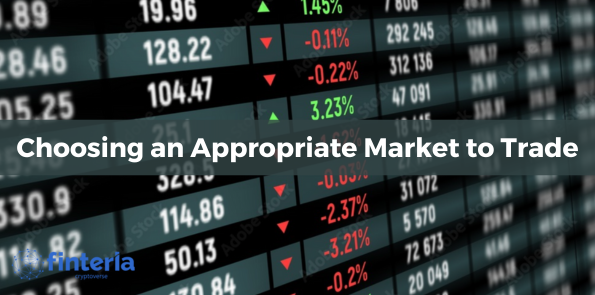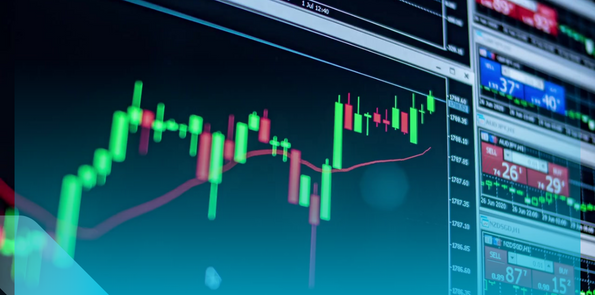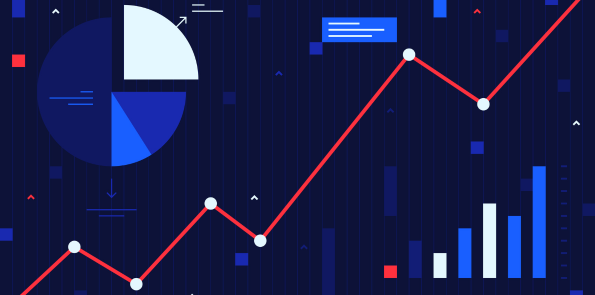Choosing an Appropriate Market to Trade

Обзоры рынка
When it comes to trading, one of the most crucial decisions you'll have to make is choosing the right market to trade in. With so many markets available, it can be overwhelming to decide which one to focus on. However, selecting the right market can significantly impact your success as a trader. In this article, we'll go over some key factors to consider when choosing an appropriate market to trade.
Understanding the Market
Before you begin trading, it's essential to have a clear understanding of the market you're interested in. Each market has its own unique characteristics, including its level of volatility, liquidity, and trading hours. Understanding these factors will help you make informed trading decisions and minimize risks. The forex market is known for its high volatility and liquidity, making it a popular choice for short-term traders. It is the largest and most liquid market in the world, with an average daily trading volume of over $5 trillion. The market is open 24 hours a day, five days a week, allowing traders to enter and exit positions quickly. On the other hand, the stock market is less volatile and typically more suitable for long-term investments. The stock market is open during regular business hours, making it more suitable for traders who prefer to trade during the day.
Assessing Your Trading Style
Your trading style is another critical factor to consider when choosing a market to trade. Each market has different trading styles that suit its unique characteristics. For instance, if you're a day trader, you may want to focus on markets with high volatility and fast-paced trading, such as the futures market. Day traders aim to profit from short-term price movements and typically hold positions for a few hours or even minutes.
Conversely, if you're a swing trader, you may prefer to focus on markets with more stable price movements, such as the stock market. Swing traders aim to profit from medium-term price movements and typically hold positions for several days or even weeks. Overall, it's essential to choose a market that aligns with your trading style and suits your overall trading goals.
Market Liquidity
Liquidity refers to the ease of buying and selling an asset in the market without significantly impacting its price. Markets with high liquidity are generally more stable, making them less risky for traders. In contrast, markets with low liquidity can be more volatile and challenging to trade.
When choosing a market, it's crucial to assess its liquidity level. For instance, the forex market is known for its high liquidity, making it easier for traders to enter and exit positions quickly. However, markets such as penny stocks may have lower liquidity levels, making them more challenging to trade.
Market Hours
Market hours can significantly impact your trading strategy, particularly if you're a day trader. Some markets, such as the forex market, operate 24 hours a day, while others operate during specific hours.
For instance, the stock market operates during regular business hours, making it more suitable for traders who prefer to trade during the day. It's essential to choose a market with hours that align with your trading schedule and strategy.
Risk Tolerance
Finally, your risk tolerance is another critical factor to consider when choosing a market to trade. Some markets may be riskier than others, depending on their level of volatility and liquidity.
If you're a risk-averse trader, you may want to focus on markets with more stable price movements, such as the stock market. However, if you're willing to take on more significant risks, you may want to consider markets such as cryptocurrencies or futures.
Cryptocurrencies are a relatively new market that has gained popularity in recent years. They are highly volatile, with prices that can fluctuate rapidly within a short period. This makes them a high-risk, high-reward market that is suitable for traders who are willing to take on significant risks. Futures markets, on the other hand, allow traders to speculate on the future price of an asset. They are highly leveraged, meaning that traders can control a large position with a small amount of capital. This makes them a high-risk market that is suitable for experienced traders who are willing to take on significant risks.
Conclusion
Choosing an appropriate market to trade is a crucial step in your trading journey. By considering factors such as market characteristics, trading style, liquidity, market hours, and risk tolerance, you can make a more informed decision and increase your chances of success as a trader. Remember to thoroughly research and analyze each market before making any trading decisions. Happy trading!



